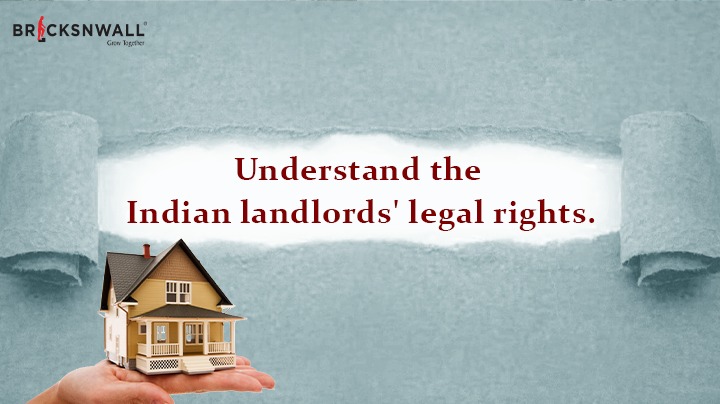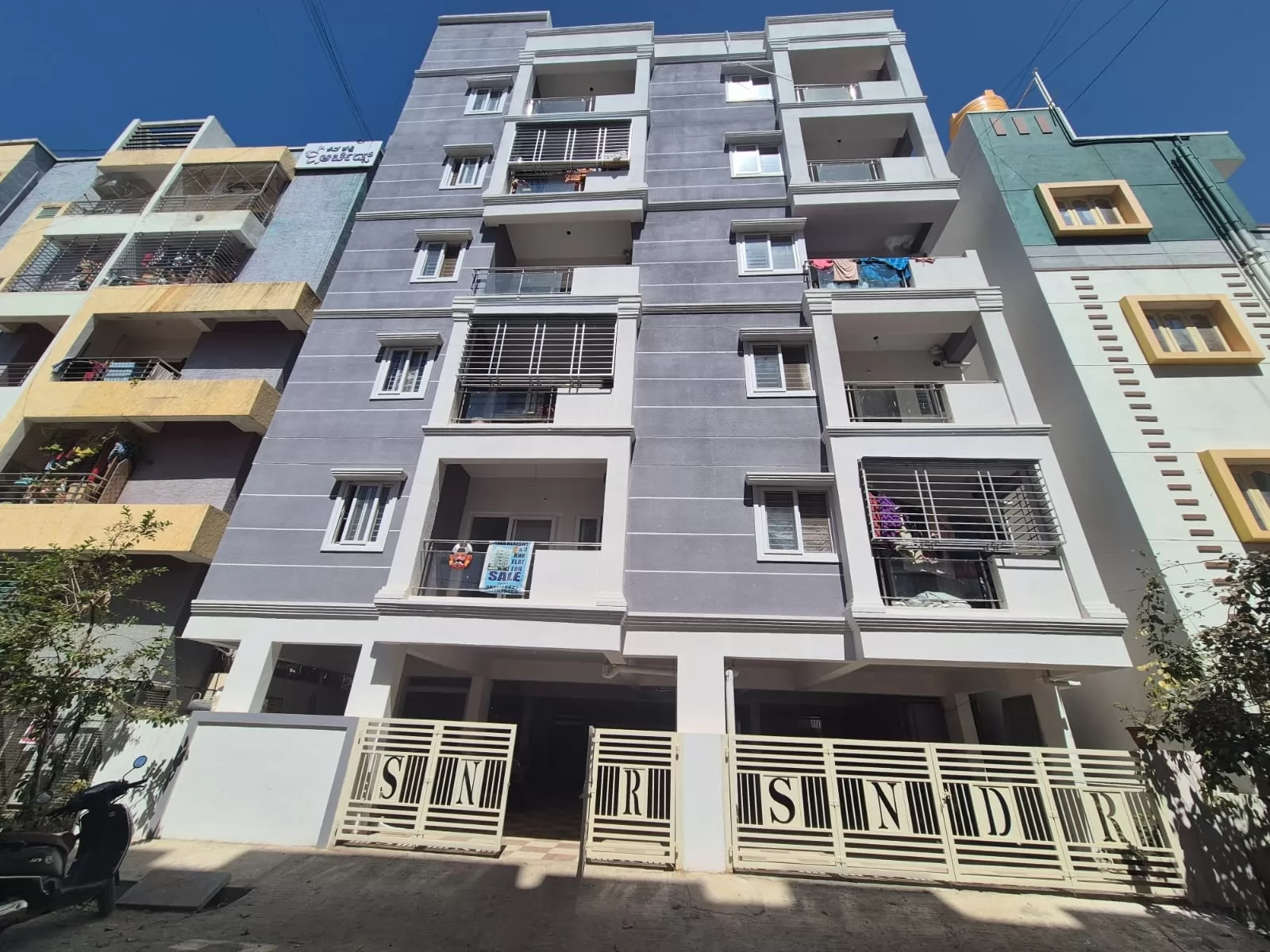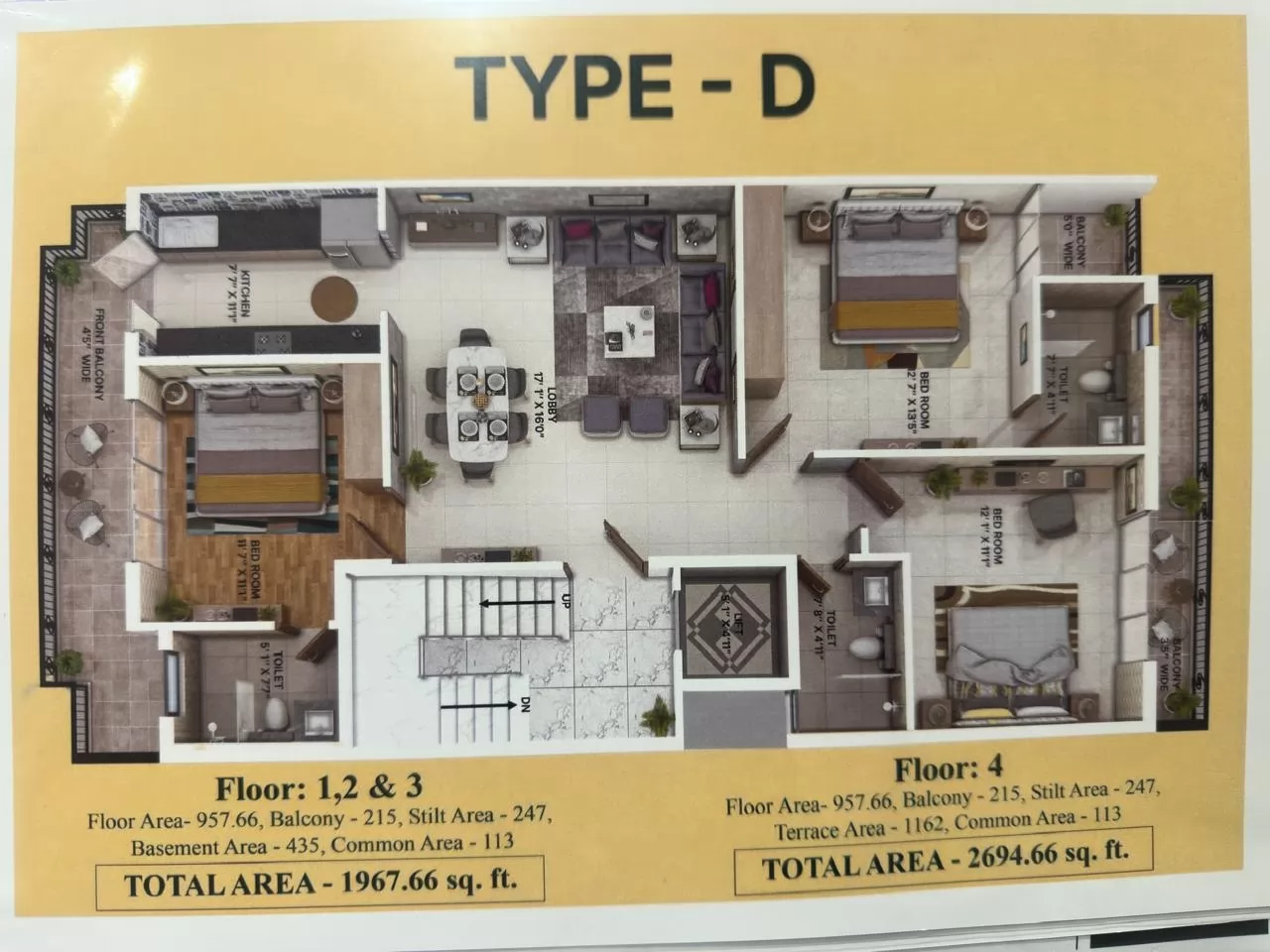Understand the Indian landlords' legal rights
Bricksnwall Trusted Experts

The Supreme Court (SC) has ruled in favor of the
landlord in a three-decade-long dispute with the tenant. The tenant has also
been fined by the court. Although we frequently hear about and support
defending a tenant's rights, this court decision makes clear how crucial
landlord rights are as well.
The Supreme Court (SC) recently rendered a decision
in a case involving a legal disagreement between a landlord and tenant, dubbed
a "classic." The top court ruled in favour of the landlord in the
1993 case that was initially brought before a civil court. In addition, the
renter has been fined Rs 1 lakh by the court and ordered to pay the landlord's
rent for the last 11 years. It is crucial to remember that a landlord's
property rights and a tenant's rights must coincide. The Indian government's
1948 Rent Control Act outlines a landlord's rights in great detail. In In
response to this law, numerous State administrations, including those in Delhi,
Karnataka, and Maharashtra, Karnataka, and Delhi have enacted or altered the
Act. There have also occasionally been changes made to these acts. Continue
reading to learn more about Indian landlords' rights.
Important rights for Indian landlords
Considering the recent ruling, let's take a closer
look at the significant rights that a landlord possesses.
Eviction rights
As the property's owner, the landlord needs to be
able to kick out an undesirable renter. But because the Rent Control Act only
applied to tenancies longer than a year, landlords had a difficult time getting
rid of renters who had been inhabiting their buildings.
The proposed Model Tenancy Act 2020 sought to
address the following problems:
- Untimely tenant removal
- Rent revision and mutual fixation
- Problems with repossession
The following are some legal justifications for a
landlord to fire a tenant:
- Partially subleasing the property without the
landlord's consent;
- Rent payments are late.
- engaging in unlawful activity on the leased
property.
- broad violation of the rental agreement.
If the tenant refuses to leave the property, the
landlord may also include a provision in the rental agreement for a progressive
increase in rent. Another reason for eviction is the possession of the property
for habitation.
Mukesh Jain, Corporate Lawyer and Founder of Mukesh
Jain & Associates discusses the Maharashtra Rent Control Act, 1999, saying
that the landlord is well protected if it is taken into consideration. In a
similar vein, the law likewise protects the interests of long-term tenants.
Nonetheless, banks, public enterprises, and businesses that have paid a capital
of Rs 1 crore are expressly excluded from the law's jurisdiction. For
instance, the Act permits the eviction of a bank that continues to occupy real
estate after the lease has expired.
Additionally, the landlord is fully protected
against nonpayment and overstaying under all leave and license agreements. They
will be evicted by the appropriate authorities, and the procedure takes roughly
six months.
Right to take temporary ownership of the property.
It is perfectly legal for a property's landlord to
force a renter out in order to perform maintenance and repairs. The landlord
has the right to request the tenant's departure if the landlord determines
that the construction, repair, alterations, additions, etc. cannot be completed
without the occupant's eviction. After the repairs are completed, the renter
may rent the space.
Ability to raise the rent
When it comes to increasing the rent, the landlord
is legally entitled to the upper hand. Owners of real estate, whether
residential or commercial, are entitled to raise rent on a regular basis in
addition to collecting rent at going rates in the market.
This balance has been achieved in part by the
inclusion of the rental market within the official housing sector of the draft
Model Tenancy Act. Important terms in this context, including inheritance, rent
due, duration, and landlord and tenant obligations, are clearly defined under
the Act.
In India, rent typically rises at a rate of 10%
annually. Nonetheless, certain states have regulations that are unique to them
that affect rental values. For instance, only in accordance with Sections 6 and
8A of the Delhi Rent Control Act may rent be raised in Delhi.
Right to receive repair notifications
Maintaining the property in a rentable state is the
property owner's responsibility as well as his duty. He keeps the right to
request that the property be fixed and to be made aware of any impending
repairs. Tenants may handle small maintenance tasks on their own. All
reimbursements, previous authorizations, etc., meanwhile, need to be requested
in writing from the landlord.
The Rent Control Act stipulates that the landlord
and renter must split the cost of repairs.
In summary, a landlord's rights need to be
actively safeguarded, much like a tenant's. An encouraging move is the Model
Tenancy Act which is being considered.
The Model Tenancy Act's prompt enactment and careful
implementation will create a more integrated rental market throughout
India.
For Similar Blog Click Here - : https://www.bricksnwall.com/blog/tips-for-the-first-time-landlords




